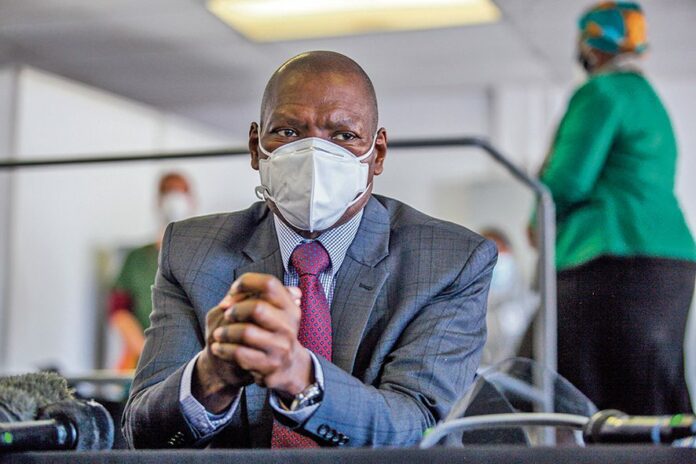Johannesburg – A new cohort of health workers is set to assist the already constrained health system that is in the throes of a second COVID-19 wave, at the start of the New Year.
Expressing concern on the rising numbers of healthcare professionals becoming infected with COVID-19, Health Minister Zweli Mkhize announced that the Department of Health is expecting assistance with the employment of new health workers.
“It will greatly assist us to welcome, in a few days, 2 367 medical interns, 1 693 medical community service practitioners who will form part of a 7 895 strong community service workforce from all categories.
“This will provide relief to our exhausted frontline workers,” said the Minister on Tuesday.
This announcement follows a surge in COVID-19 cases in the country with 1 011 871 cumulative cases reported on Monday.
South Africa has also surpassed the peak of the first wave compelling government to tighten restrictions and move the country to adjusted level 3 of the lockdown.
The majority of new cases are from KwaZulu-Natal with 2 275 (30,5%) followed by the Western Cape at 2 191 cases (29,4%), Gauteng at 1 849 cases (24,8%) and the Eastern Cape at 384 cases (5,1%).
The overall positivity rate for newly tested individuals is 32,9%, with the Western Cape at 45,6%, followed by Limpopo at 41,0%, KwaZulu-Natal at 36,0% and Mpumalanga at 33,1%.
“These positivity rates are extremely high and are a major concern. Overall we need to test more and target a positivity rate of 10% or less. [In addition], 11 256 patients are currently hospitalised- this is 8,3 % of our active cases. Of these 3 543 are on oxygen and 604 are on ventilators,” said the Minister.
According to the resurgence thresholds, the majority of districts in South Africa are in response phase – this means greater than or equal to 20% increase in new COVID-19 cases compared to 7 days prior.
Provinces are now instituting their tailored resurgence plans, adapted from the surge plan that was developed together with the World Health Organisation.
The key focus areas of the resurgence plan include governance and leadership, medical supplies, port and environmental health, epidemiology and response, facility readiness, case management, information systems, risk communication and community engagement, occupational health and safety and human resources.
PPE stock shortage
To combat stock shortages of personal protective equipment (PPE), Mkhize encouraged trade unions to access the dashboard and use the Stock Visibility System to monitor availability.
“Currently, overall availability of PPE is at 87.1%. We encourage unions to access the dashboard and use the Stock Visibility System to assist us with stock surveillance and movement and continue to be active participants in OHS committees as was jointly resolved over the course of the pandemic,” he said.
COVID-19 strains non-COVID related services
With the resurgence of the virus, the Minister urged citizens to adhere to protocols to enable non-COVID related services to continue.
“The alcohol ban will greatly assist to reduce the trauma burden on our facilities over the festive season and save lives.
“…We do not want a situation where we bring COVID-19 under control, only to find that other major public health burdens become exacerbated by neglect,” he said.
Mkhize reminded citizens to ensure they access essential services such as immunisations, antenatal care for expectant mothers, screening and testing for other communicable diseases such as malaria, HIV, and TB.
He also called for the screening and testing for non-communicable diseases such as hypertension, diabetes, prostate, cervical and breast cancer and voluntary male circumcision.
– SAnews.gov.za
Follow @SundayWorldZA on Twitter and @sundayworldza on Instagram, or like our Facebook Page, Sunday World, by clicking here for the latest breaking news in South Africa. To Subscribe to Sunday World, click here.
Sunday World



